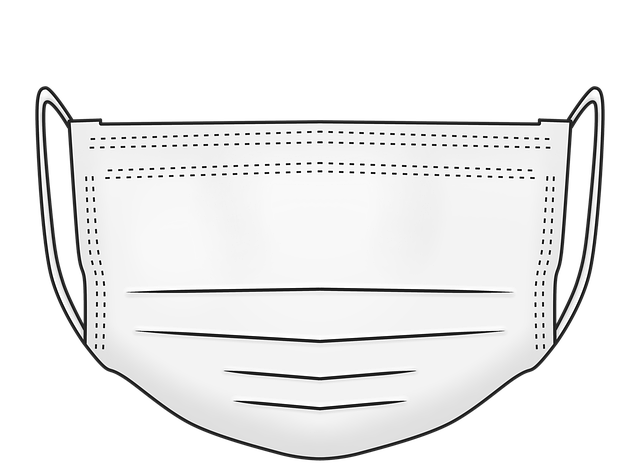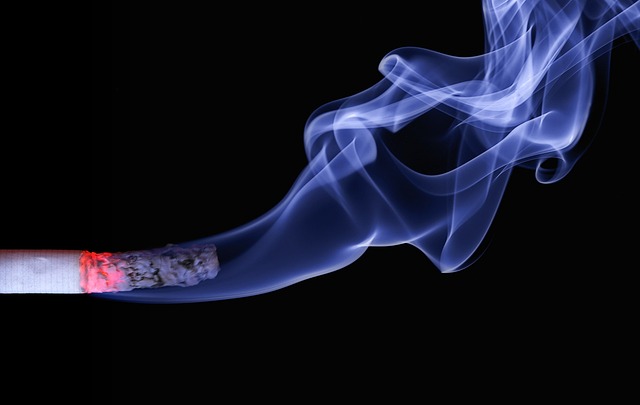Smoke-Free Recovery: Wisdom Teeth Do’s and Don’ts
Wisdom teeth can be a pain in more ways than one. As if the discomfort and swelling weren’t enough, the recovery process often requires some lifestyle adjustments. If you’re one of the many individuals facing the daunting task of wisdom tooth extraction, you’ve probably heard the phrase “smoke-free recovery” thrown around. But what does it really mean? In this article, we will delve into the do’s and don’ts of navigating your way through a smoke-free recovery after wisdom teeth extraction. So, sit back, relax, and prepare to arm yourself with the wisdom you need for a smooth and successful healing process.
1. Understanding the Importance of Smoke-Free Recovery After Wisdom Teeth Extraction
After undergoing wisdom teeth extraction, it is crucial to understand the significance of maintaining a smoke-free recovery. Smoking can severely hinder the healing process and lead to complications that can prolong your recovery time. Here are some key reasons why a smoke-free recovery is essential:
1. Reduced Risk of Dry Socket: Smoking increases the risk of developing dry socket, a painful condition where the blood clot that forms after extraction dislodges. This can delay healing and cause excruciating pain. By avoiding smoking, you significantly decrease the chances of experiencing this complication.
2. Faster Healing Time: Smoking introduces harmful chemicals and toxins into your mouth, which can impede the healing process. Nicotine, in particular, constricts blood vessels, reducing blood flow to the surgical site and slowing down the formation of new tissues. By abstaining from smoking, you allow your body to heal more efficiently, leading to a faster recovery.
2. Do’s and Don’ts for a Successful and Smooth Recovery from Wisdom Teeth Removal
When it comes to recovering from wisdom teeth removal, there are certain do’s and don’ts that can greatly enhance your experience and ensure a successful and smooth recovery. By following these guidelines, you can minimize discomfort, reduce the risk of complications, and promote healing. Here are some important tips to keep in mind:
- Do’s:
- Follow your dentist or oral surgeon’s post-operative instructions diligently.
- Take prescribed pain medication as directed to manage any discomfort.
- Apply ice packs to your cheeks for the first 24 hours to reduce swelling.
- Stick to soft foods like soups, smoothies, and mashed potatoes for the first few days.
- Keep your mouth clean by gently rinsing with warm saltwater solution after meals.
- Don’ts:
- Avoid using straws, as sucking can dislodge blood clots and delay healing.
- Avoid smoking or using tobacco products, as they can impede the healing process.
- Avoid consuming hot or spicy foods and drinks that may irritate the surgical site.
- Avoid strenuous activities and exercise for at least the first 48 hours.
- Avoid touching the surgical site with your fingers or tongue to prevent infection.
By adhering to these do’s and don’ts, you can ensure a successful recovery from wisdom teeth removal and get back to your normal routine as quickly as possible. Remember to consult with your dentist or oral surgeon if you have any concerns or questions throughout the healing process.

3. Essential Guidelines for Maintaining a Smoke-Free Environment during Wisdom Teeth Recovery
When recovering from wisdom teeth removal, it is crucial to maintain a smoke-free environment to ensure proper healing and minimize the risk of complications. Here are some essential guidelines to follow:
Avoid smoking: Smoking, whether it’s cigarettes, cigars, or any other form of tobacco, can significantly hinder the healing process and increase the chances of infection. The chemicals in tobacco smoke can delay the formation of blood clots, which are necessary for proper healing. Additionally, the act of inhaling smoke can be harmful to the sensitive surgical site, potentially leading to dry socket or other complications. It is best to abstain from smoking completely during the recovery period.
Avoid secondhand smoke: Even if you are not the one smoking, exposure to secondhand smoke can still have negative effects on your healing process. Secondhand smoke contains many of the same harmful chemicals as firsthand smoke and can still impede the formation of blood clots and hinder the recovery process. Therefore, it is important to steer clear of environments where smoking is taking place to maintain a smoke-free environment during your wisdom teeth recovery.

4. The Potential Risks and Negative Impact of Smoking on Wisdom Teeth Extraction Healing
Smoking has been widely recognized as a detrimental habit that can have numerous adverse effects on our health. When it comes to wisdom teeth extraction healing, smoking poses potential risks and can significantly hinder the recovery process. Here are some key points to consider:
Negative impact on blood circulation: Smoking restricts blood vessels and reduces blood flow, which is crucial for proper healing. This can lead to delayed healing and increase the risk of complications such as infection or dry socket.
Impaired immune response: Smoking weakens the immune system, making it harder for the body to fight off infections. This can result in prolonged healing time and an increased likelihood of developing complications.
It is important to note that these risks are not limited to cigarettes alone; other tobacco products, such as cigars and chewing tobacco, can also have similar effects on healing. To ensure a smooth and successful recovery after wisdom teeth extraction, it is highly recommended to avoid smoking or using any tobacco products during the healing period.

5. Expert Tips on Smoke-Free Recovery: How to Cope Without Cigarettes After Wisdom Teeth Surgery
Recovering from wisdom teeth surgery can be challenging, especially if you’re trying to quit smoking at the same time. To help you navigate this smoke-free recovery period, we’ve gathered expert tips on how to cope without cigarettes. These tips will not only promote a faster healing process but also support your journey to a smoke-free lifestyle.
1. Find alternative coping mechanisms: Since smoking may have been a way to cope with stress or boredom, it’s important to find healthier alternatives. Consider engaging in activities such as deep breathing exercises, meditation, or listening to calming music. These alternatives will help distract your mind from cravings and provide a sense of relaxation.
- 2. Stay hydrated: Drinking plenty of water is crucial during recovery. Not only does it keep you hydrated, but it can also help reduce cravings. Whenever you feel the urge to smoke, grab a glass of water instead. This will keep your mouth busy and help satisfy the oral fixation associated with smoking.
- 3. Surround yourself with support: Reach out to friends, family, or support groups who can offer encouragement and understanding during this challenging time. Having a support system in place can significantly increase your chances of successfully quitting smoking and navigating your smoke-free recovery.

6. Avoiding Smoking: A Key Factor in Promoting Faster Healing and Minimizing Complications after Wisdom Teeth Removal
After wisdom teeth removal, it is crucial to avoid smoking as it can significantly impact the healing process and increase the risk of complications. Here are some key reasons why avoiding smoking is essential:
- Delayed Healing: Smoking introduces harmful chemicals into the body, which can slow down the healing process after surgery. The nicotine and other toxins in cigarettes can constrict blood vessels, reducing blood flow to the surgical site. This decrease in blood flow can delay the delivery of essential nutrients and oxygen needed for proper healing.
- Infection Risk: Smoking weakens the immune system, making it more susceptible to infections. The mouth is already a breeding ground for bacteria, and after wisdom teeth removal, the surgical site is especially vulnerable. Smoking can introduce additional bacteria and toxins into the mouth, increasing the risk of infection and complicating the healing process.
- Dry Socket: Dry socket is a painful condition that can occur after tooth extraction when the blood clot that forms in the socket is dislodged or dissolves prematurely. Smoking, particularly the act of sucking on a cigarette, can create negative pressure in the mouth and dislodge the blood clot, leading to dry socket. This condition can cause severe pain and delay healing.
By avoiding smoking, you can promote faster healing and minimize complications after wisdom teeth removal. It is essential to refrain from smoking for at least 72 hours after the surgery to give your body the best chance to heal properly. If you need assistance with quitting smoking, consult with your healthcare provider who can provide guidance and support throughout the process.
7. Making Informed Choices: Alternatives to Smoking during Wisdom Teeth Recovery
During the recovery period after wisdom teeth removal, it is crucial to avoid smoking in order to promote healing and reduce the risk of complications. However, there are several alternatives to smoking that can help alleviate cravings and provide a similar sensation without hindering the recovery process. By opting for these alternatives, you can ensure a smooth and successful recovery without compromising your oral health.
1. Nicotine patches or gum: These over-the-counter options can help satisfy your cravings for nicotine without the harmful effects of smoking. They deliver a controlled amount of nicotine to your body, reducing withdrawal symptoms and making it easier to abstain from smoking during the recovery period.
2. Herbal cigarettes: Although they do not contain tobacco or nicotine, herbal cigarettes can provide a similar smoking ritual and hand-to-mouth action. They are made from various herbs and plants, offering a smoke-like experience without the harmful chemicals found in traditional cigarettes. It is important to note that while herbal cigarettes are a safer alternative, they still produce smoke, so they should be used sparingly and with caution.
Frequently Asked Questions
Q: What are wisdom teeth and why do they often require removal?
A: Wisdom teeth are the third set of molars that typically emerge in the late teens or early twenties. Due to various factors such as limited space in the mouth, these teeth often grow in misaligned or impacted, leading to potential oral health problems. As a result, they frequently require surgical extraction.
Q: Is it safe to smoke after getting wisdom teeth removed?
A: No, it is strongly advised against smoking after wisdom teeth removal. Smoking can delay the healing process, increase the risk of complications, and hinder the formation of a blood clot, which is crucial for proper healing and preventing dry socket.
Q: What is dry socket, and why is it a concern when smoking after wisdom teeth removal?
A: Dry socket is a painful condition that occurs when the blood clot that forms after tooth extraction becomes dislodged or dissolves prematurely. Smoking can increase the chance of developing dry socket due to the suction created while inhaling. This can disrupt the clot and expose the underlying nerves and bone, leading to intense pain and potential infection.
Q: How long should one wait before smoking after wisdom teeth removal?
A: It is recommended to refrain from smoking for at least 72 hours after wisdom teeth extraction. This waiting period allows for proper blood clot formation and initial healing to occur, reducing the risk of complications such as dry socket.
Q: Are there any alternatives to smoking during the recovery period?
A: Absolutely! Instead of smoking, individuals can consider using nicotine patches, gum, or other nicotine replacement therapy products. These alternatives can help satisfy nicotine cravings without the negative impact of smoking on the healing process.
Q: Can vaping be a suitable alternative to smoking after wisdom teeth removal?
A: Vaping should also be avoided after wisdom teeth removal, as it can have similar detrimental effects on the healing process. The suction created while vaping can dislodge the blood clot and potentially lead to dry socket or other complications.
Q: Are there any other do’s and don’ts to keep in mind during the recovery period?
A: Yes, there are several important do’s and don’ts to ensure a smooth recovery after wisdom teeth removal. Some key recommendations include avoiding strenuous physical activity, sticking to a soft food diet, practicing good oral hygiene, and following all post-operative instructions provided by your dentist or oral surgeon.
Q: How long does it typically take to fully recover from wisdom teeth removal?
A: The recovery period can vary from person to person, but it usually takes about one to two weeks to fully recover from wisdom teeth removal. It is essential to follow all post-operative care instructions and attend any necessary follow-up appointments to monitor the healing progress.
Q: Can smoking after wisdom teeth removal cause long-term complications?
A: While the immediate concern is the risk of developing dry socket and delaying the healing process, smoking after wisdom teeth removal can also have long-term consequences. Smoking is known to increase the risk of gum disease, delayed wound healing, and other oral health complications. It is best to quit smoking altogether or at least refrain from it during the recovery period to promote optimal healing and overall oral health.
To Wrap It Up
In conclusion, ensuring a smoke-free recovery after wisdom teeth extraction is crucial for a smooth healing process. By following these key do’s and don’ts, you can promote optimal healing and reduce the risk of complications. Remember, do keep your mouth clean with gentle rinsing and brushing, maintain a soft diet, and take pain medication as directed. Don’t smoke, use straws, or consume hard, crunchy foods. By prioritizing your oral health and adhering to these guidelines, you can recover comfortably and get back to your daily routine in no time.






